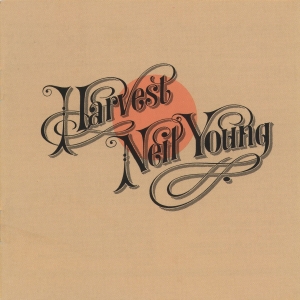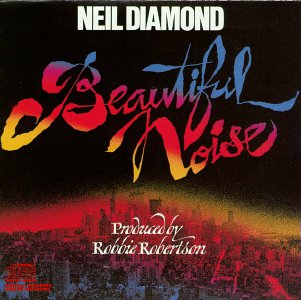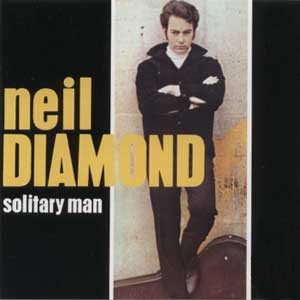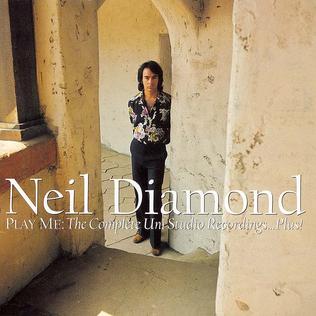
Harvest is the fourth studio album by Canadian-American musician Neil Young, released on February 1, 1972, by Reprise Records, catalogue number MS 2032. It featured the London Symphony Orchestra on two tracks and vocals by noted guests David Crosby, Graham Nash, Linda Ronstadt, Stephen Stills, and James Taylor. It topped the Billboard 200 album chart for two weeks, and spawned two hit singles, "Old Man", which peaked at No. 31 on the US Billboard Hot 100, and "Heart of Gold", which reached No. 1. It was the best-selling album of 1972 in the United States. The album has since remained Neil Young's signature album as well as his best selling.

Queen II is the second studio album by the British rock band Queen. It was released on 8 March 1974 by EMI Records in the UK and Elektra Records in the US. It was recorded at Trident Studios and Langham 1 Studios, London, in August 1973 with co-producers Roy Thomas Baker and Robin Geoffrey Cable, and engineered by Mike Stone. It is significant for being the first album to contain elements of the band's signature sound of multi-layered overdubs, vocal harmonies, and varied musical styles.

Buffalo Springfield is the debut album by the folk rock band Buffalo Springfield, released in December 1966 on Atco Records. Band members Stephen Stills and Neil Young wrote all the material on the album.

"Heart of Gold" is a song by Canadian singer-songwriter Neil Young. From his fourth album Harvest, it is Young's only U.S. No. 1 single. In Canada, it reached No. 1 on the RPM national singles chart for the first time on April 8, 1972, on which date Young held the top spot on both the singles and albums charts. Billboard ranked it as the No. 17 song for 1972. In 2004, Rolling Stone ranked it No. 297 on their list of the 500 greatest songs of all time, No. 303 in an updated 2010 list, and No. 259 in 2021.

Aoxomoxoa is the third studio album by the Grateful Dead. One of the first rock albums to be recorded using 16-track technology, fans and critics alike consider this era to be the band's experimental apex. The title is a meaningless palindrome, usually pronounced.

What a Long Strange Trip It's Been is the second compilation album by American rock band Grateful Dead. It was released August 18, 1977 by Warner Bros. Records, three and a half years after the Skeletons from the Closet compilation. Both albums are subtitled "The Best of the Grateful Dead". Unlike the previous compilation, What a Long Strange Trip It's Been is a double album.

Dozin' at the Knick is a recording of the Grateful Dead performing live in concert at the Knickerbocker Arena in Albany, New York. It was recorded March 24–26, 1990, and was released in 1996. The album was certified Gold by the RIAA on March 28, 2000. Fans of the Dead frequently refer to the album as "Dosin" at the Knick.

Dream Letter: Live in London 1968 is a live album by Tim Buckley. The album was recorded in Queen Elizabeth Hall, London, England on October 7, 1968. Due to a lack of available funds Buckley was unable to tour with regular bass player John Miller and conga player Carter "C.C." Collins. The concert instead features bassist Danny Thompson, guitarist Lee Underwood and vibraphone player David Friedman.

Neil Young Archives Vol. 1: 1963–1972 is the first in a planned series of box sets of archival material by Canadian-American musician Neil Young. It was released on June 2, 2009, in three different formats - a set of 10 Blu-ray discs in order to present high resolution audio as well as accompanying visual documentation, a set of 10 DVDs and a more basic 8-CD set. Covering Young's early years with The Squires and Buffalo Springfield, it also includes various demos, outtakes and alternate versions of songs from his albums Neil Young, Everybody Knows This Is Nowhere, After the Gold Rush, and Harvest, as well as tracks he recorded with Crazy Horse and Crosby, Stills, Nash & Young during this time. Also included in the set are several live discs, as well as a copy of the long out-of-print film Journey Through the Past, directed by Young in the early 1970s.

Beautiful Noise is the tenth album by Neil Diamond and his third with Columbia Records, released in 1976. "Dry Your Eyes" was performed with The Band at their farewell show and is featured in Martin Scorsese's The Last Waltz.

"Solitary Man" is a song that was written and composed by American musician Neil Diamond, who himself initially recorded the song for BANG Records in late January 1966. It has since been covered many times by such artists as Billy Joe Royal, B.J. Thomas, Jay and the Americans, T. G. Sheppard, Gianni Morandi, The Sidewinders, Chris Isaak, Johnny Cash, Johnny Rivers, HIM, Crooked Fingers, Cliff Richard, Ólöf Arnalds, Theuns Jordaan and Farhad Mehrad.

Merkin Ball is an extended play (EP) by American alternative rock band Pearl Jam. The EP contains two songs: A-side "I Got Id" and B-side "Long Road", both written by Pearl Jam lead singer Eddie Vedder. The EP features Canadian-American musician Neil Young and was released on December 4, 1995, through Epic Records. Merkin Ball is a companion to Young's 1995 album, Mirror Ball.

Archaeology is the second album by parody band The Rutles. Like their previous release, the album contains pastiches of Beatles songs.

Troubadour is the twenty-fifth studio album by American country music singer George Strait. It was released on April 1, 2008 on MCA Nashville Records. The album comprises twelve tracks, including two duets. The lead-off single, "I Saw God Today", was the highest-debuting single of Strait's career, and his forty-third Number One on the Billboard country charts. The album has been certified platinum by the RIAA. At the 51st Grammy Awards, Troubadour earned the Grammy Award for Best Country Album, the first Grammy win of Strait's career. The album was intended to include the song "Everybody Wants to Go to Heaven", but after Strait decided not to include it on the album, it was later recorded by Kenny Chesney, and was released as the first single from his album Lucky Old Sun. "It Was Me" was originally recorded by Jamey Johnson on his 2006 album, The Dollar.

Home Before Dark is the twenty-seventh studio album by American singer-songwriter Neil Diamond. Released on May 5, 2008, it was the artist's second album for American Recordings.

Live in the LBC & Diamonds in the Rough is the first live DVD, and compilation album by heavy metal band Avenged Sevenfold released on September 16, 2008 by Warner Bros. Records. The live DVD features the band's April 10, 2008 show at Long Beach Arena headlining the Rockstar Taste of Chaos tour, while the CD contains previously unreleased B-sides that were recorded during the making of the band's self-titled 2007 album, plus covers, and other never-before-heard material.

Headed for the Future is the seventeenth studio album released by Neil Diamond in March 1986 on Columbia Records. The album went to number 20 on the US Billboard 200. Headed for the Future has also been certified Gold in the US by the RIAA.
"The Root" is a song by American recording artist D'Angelo. It is the eighth track on his second studio album, Voodoo, which was released on January 25, 2000, by Virgin Records. "The Root" was recorded and produced by D'Angelo at New York's Electric Lady Studios during sessions for the album.

Play Me: The Complete Uni Studio Recordings...Plus! is a box set of Neil Diamond's recordings for Uni Records. This anthology contains all of the tracks from:
The Black Diamonds were an Australian garage rock band from Lithgow, New South Wales, which were active under different names from 1959 to 1971. By 1965 the line-up consisted of Glenn Bland on vocals and harmonica, Allen Keogh on bass guitar, Colin McAuley on drums, Alan "Olly" Oloman on lead guitar and vocals, and his younger brother Neil Oloman on rhythm guitar. They signed with Festival Records, where they released two singles. The better-known B-side track, "I Want, Need, Love You", appeared on their first single in 1966 and became a regional hit. It features an pleading vocal over a driving rhythm section and fast guitar breaks. The band toured in support of the Easybeats. In 1967 their second single, "Outside Looking In", was a hit in the Sydney area. In 1968 the group changed their name to Tymepiece and evolved into a more eclectic and progressive style. Briefly changing their name to Love Machine they released a cover version of the Tokens' single, "Lion Sleeps Tonight" (1968). They reverted to Tymepiece and issued an album, Sweet Release, in February 1971 but broke up soon after. According to Australian musicologist, Ian McFarlane, "[they] will be remembered as one of the most ferocious garage/punk outfits Australia ever produced in the 1960s."


















